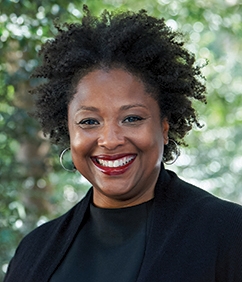Advocacy by the Civil Rights Clinic helps end a crime-free housing program with racially disparate impact
In 2013, the city of Tampa, Florida, enacted the Crime Free Multi-Housing Program, which notified landlords if their tenants were arrested. Landlords in over 100 apartment communities in Tampa registered for the program, and received alerts directly from city police.
Touted as a way to reduce violent crime, the Tampa program was one of many such crime-free housing programs nationwide. But in a 2019 article published in the Michigan Law Review, Professor Deborah Archer argued that such programs are racially discriminatory, reflecting the racial biases and disparities of the criminal legal system. As people of color are disproportionately barred or evicted from housing under these programs, Archer wrote, the result is a new form of segregation.
Last year, working with a coalition of advocates including the NAACP and the American Civil Liberties Union, Archer and students in her Civil Rights Clinic challenged the Tampa program. Clinic students researched housing and policing data, and in September 2021 they sent a letter to Tampa Mayor Jane Castor and the City Council seeking an end to the Crime Free program. They contended that the Crime Free program’s lease addendum and screening procedures likely violate the Fair Housing Act by creating a disparate impact on Black residents. Their letter also argued that the program promotes over-policing of Black and other minority people. Concurrently, the Tampa Bay Times published the results of a lengthy investigation that documented the disparate impact of the Crime Free program on tenants of color.
Despite the Tampa police department’s promise that the program would focus on reducing violent crime, landlords were notified when tenants were arrested for misdemeanors or even just stopped by police. In many cases, these notices led to evictions, even when charges were later dropped. Police records also showed that 90 percent of the 1,100 people flagged by the program were Black, despite the fact that arrests of Black residents made up only 54 percent of arrests in the past eight years.
Clinic students also presented research findings and arguments to Tampa Mayor Jane Castor via Zoom, and Justin McCarroll ’23 testified in a hearing in front of the City Council on September 23, 2021.
“Our experience challenging Tampa’s Crime Free program served as a perfect model for many of our later projects,” says McCarroll. “It was clear to us that without both the wonderful piece of investigative journalism from the Tampa Bay Times and the pressure lawmakers felt from organizers and community members alike, the city would have likely put up an even greater fight. I feel blessed to have played a small role in a much bigger push for change in Tampa and I am excited for the work that is still to come.”
In December 2021, the Tampa Police Department announced that it would replace the Crime Free program with the Safety Awareness for Everyone (“SAFE)” program. SAFE is a new community effort focusing on educating Tampans on local crime and best practices and public safety. Under SAFE, police will not notify landlords of tenants’ arrests. Residents, landlords, and business owners can track nearby police activity and submit anonymous crime tips on an online dashboard. That same month, the US Department of Justice began an investigation to determine whether Tampa’s Crime Free program violated the Fair Housing Act.
The Civil Rights Clinic continues to partner with the NAACP to challenge crime-free housing ordinances around the country. “We are also engaging in other housing-related work including working with a community in South Carolina to challenge a road project that would destroy many homes and have a devastating impact on this community,” says Archer.
This month Archer will receive the NAACP’s Foot Soldier in the Sands Award, which honors pro bono work by outside counsel, in recognition of the clinic’s work in Tampa and its representation of various state and local chapters of the NAACP in challenging housing discrimination in Illinois, discriminatory redistricting in Louisiana, and discriminatory infrastructure projects in South Carolina.
Posted on July 1, 2022


